No one ever chooses to have cancer, but some people choose to treat it.
A diagnosis can be fraught with fear and frustration, uncertainty and pain. But for all patients who receive treatment, a supportive health care team can make all the difference.
In honor of Breast Cancer Awareness Month, we asked 11 people who have dedicated their lives to breast cancer research, treatment and patient support to share their stories with HuffPost. Below, find out why they chose the field they did.
* * *
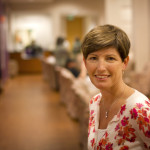
Now, almost nine years later, I know amazing breast cancer patients of all ages, and it is my privilege to work with the youngest breast cancer patients at Johns Hopkins. There are difficult days that the work breaks my heart, for all of us. There are many more days in which I am energized and inspired by the brave, funny, smart women that I meet. But my favorite part of my job is meeting with newly-diagnosed young women, the familiar fear in their eyes, and answering their questions. Yes, I also had breast cancer as a young woman. Yes, chemotherapy, too. Yes, it has been almost nine years. Yes, we're going to get you to the other side of this, too. And then? Well, then, you're going to need some fabulous shoes.
- Beth Thompson, RN, MSN, CBCN, is a nurse educator and navigator at the Johns Hopkins LiveWell Center for Young Women with Breast Cancer. Thompson has been working in this role for three years.
* * *
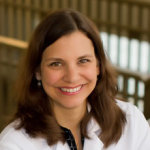
- Valerie L. Staradub, MD, is a breast surgeon at Danbury Hospital. She has been working at Danbury for four years.
* * *
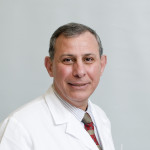
The breast cancer field is very rewarding in its success and high cure rate. You could see your patient 15 and 20 years later. And back when I was just getting into this particular field, I thought it had better funding than other disease sites.
With breast cancer, you deal with a lot of emotions and complexity (fertility, pregnancy in young patients), small kids and special dynamic in the house; all this beyond the cancer itself. This aspect needs special attention and I enjoy that. However, my least favorite part of the job is when I see a complication or a failure of the treatment I gave.
I changed direction in my research, from breast radiation oncology research into survivorship and life after treatment! I did not expect that and I am enjoying this new line of research.
- Alphonse Taghian, MD, PhD, is the director of Breast Radiation Oncology and co-director of the Breast Cancer Research Program at Massachusetts General Hospital Cancer Center, as well as a professor of radiation oncology at Harvard Medical School. Taghian has been working in the field of breast radiation oncology for 21 years.
* * *
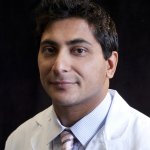
My favorite part of my job is connecting with patients. Everything from discussing things like their grandchildren or how a local sports team is doing to being a witness to their incredible bravery and courage while facing this horrible disease. I’m inspired by my patients on a daily basis. I may play the role of a healer in our relationship, but they are often the ones shaping who I am and teaching me countless life lessons. A quote I quite often reference in my line of work is “the best way to find yourself is to lose yourself in the service of others” – it’s very true. Of course, with positives always come some negatives and that leads me to the worst part of my job — the frustration I feel when the practice of medicine reaches its limit. There is nothing quite as frustrating as having reached an end point where this is nothing more I can offer a patient as treatment.
I have a recent unexpected experience to share. One of my patients recently invited me to their wedding. Not only was I honored, but it reflected how I am able to share milestones my patients. They come to me at low point in their life and because of the treatment they receive I am able to join them for dancing at their wedding or child's graduation party. These connections with patients – seeing them at the high and low points of their life – are a blessing. As a medical student I never expected that I would forge such meaningful relationships with the people that enter my life as patients. I’m happy that they remain in my life as friends.
- Sameer A. Patel, MD, FACS, is an assistant clinical professor in the Department of Surgical Oncology and Division of Plastic and Reconstructive Surgery at Fox Chase Cancer Center. He has been working in the field for seven years.
* * *
- Carlos Arteaga, MD, is the president of the American Association for Cancer Research and director of the Breast Cancer Program at Vanderbilt University. He has been working in the field for around 25 years.
* * *
My favorite part of the job is my interaction with my patients. When they are happy and hopeful, I am too. When they are anxious and upset, I do my best to reassure and take care of them. My least favorite part of the job is seeing a patient become sick sooner than expected, especially when they are young and with a young family.
- Roisin Connolly, M.B, B.Ch, is an assistant professor of medicine and medical oncology at the Sidney Kimmel Comprehensive Cancer Center at Johns Hopkins. Connolly has been working in the field of breast cancer for the last six years.
* * *
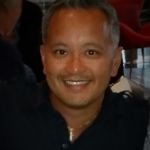
My work in the sexual health clinic has been a tremendous opportunity to help patients, beyond discussions of chemotherapy, endocrine therapy, and treatments for cancer. It has been a way to persevere as an oncologist because I help women and their partners navigate the world after cancer, and try to make sense of what life (or lives) can mean afterwards. It has become one of the most treasured roles I play in Oncology, and sexual health and survivorship are some of the passions for me both academically and clinically. It is also the most unexpected turn I have taken in medical oncology, but as stated earlier, is perhaps one of the biggest reasons I am able to stay engaged as a medical oncologist for the treatment of our patients.
- Don S. Dizon, MD, is a medical oncologist and director of The Oncology Sexual Health Clinic at Massachusetts General Hospital Cancer Center.
* * *
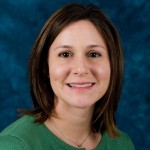
Five years later (after three years of residency and two in EM practice), I decided to pursue additional training to become a radiation oncologist. Emergency medicine and radiation oncology are both incredibly rewarding fields to work in. Both involve a team approach to care and taking care of patients in crisis or at critical times in their lives. But I was eager to have the opportunity to care for my patients over a longer period of time. There was no one specific impetus that drove me to that decision, but rather so many little ones. It was one of the easier choices I have ever made, and one I made without fear. Instead it was made with hope and the knowledge that it was the right choice for me.
It is a privilege to care for patients. I say so every day and every time a patient of mine completes her or his course of treatment. I hope to make the process of receiving care as easy as it can be under the circumstances, and I work with an incredible team of care providers who do the same. Our patients inspire us every day -- sometimes through profoundly joyful moments and stories, sometimes through tragic circumstances. I have had a patient look at me and tell me frankly, “I do not have time for this,” referring to her new diagnosis of breast cancer, and I get it -- no one plans for this diagnosis and no one wants to be a patient at a cancer center. I have a patient whose sister accompanied her to each and every one of her radiation treatments over a course of six-and-a-half weeks, as she had done for each of her prior appointments and all her chemotherapy infusions. I see patients in our waiting rooms comfort each other, orient and show each other the ropes of treatment, show each other how to don our wraparound breast gowns, and pay forward incredible acts of kindness. During difficult times or after sad news, I often walk by the treatment hallway and waiting rooms and just observe the connections being made among our patients.
It has now been eight years since I made the change to radiation oncology, and today I practice at the same institution where my grandmother received her care. Much has changed; there is much greater awareness on the importance of patient and family experience, defining and implementing quality measures, and exponential advances in science and technology. Not only during this month of “Pinktober,” but all year, I try to think of the small gestures and efforts that each of us can make to raise awareness, educate, facilitate care, fundraise, and make our own impact.
- Kilian Salerno, MD, is a radiation oncologist, assistant professor of oncology and director of breast radiation and soft tissue/melanoma radiation at Roswell Park Cancer Institute in Buffalo, N.Y. Salerno has been in medicine for 13 years, eight of which were spent in radiation oncology.
* * *
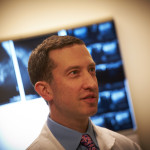
-Richard J. Bleicher, MD, is an associate professor in the Department of Surgical Oncology, the director of the Breast Fellowship Program and the leader of Breast Service Line at Fox Chase Cancer Center. Bleicher has been working in the field for 11 years.
* * *
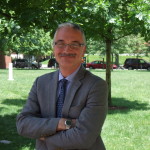
During my initial oncology training in Italy, I was fortunate to have Dr. Alberto Pellegrini as mentor. He was the director of the medical oncology program at the university and a prominent expert in breast cancer. I worked with him for three years and become responsible for some dedicated clinical trials. That experience motivated me to leave my country and pursued a career in academic oncology. I had to repeat oncology training in spite of being a certified oncologist but I did not mind because it was in the most prestigious cancer institution, the UT-MDACC (University of Texas MD Anderson Cancer Center), and I would have later the chance to work in the largest breast medical oncology department.
The most pleasant part of my job is to interact with patients and help them. I always try to understand their problems and listen to their concerns. I imagine myself as the young man standing by his father in the exam room, unable to ask but willing to listen. Every case is very personal to me. The least favorite part is to deal with the inefficiency of the health system that is not as “patient-friendly” as we would like. Discussing with managed care employed physicians to clear payment for complex treatment is frustrating and inappropriate use of our time, besides being stressful for patients. There must be a better way.
I did not know when I started that I was going to be so much involved and leading specific area of research. When you start a project, you may not know the implications and results. Focusing my research on understanding and finding therapies for inflammatory breast cancer, one of the most aggressive forms of the disease, is now a considerable part of my clinical practice -- but it has also become something more. It is like a mission to accomplish, a mystery to solve. Who else will take this task on?
- Massimo Cristofanilli, MD, is the deputy director of Translational Research and director of the Jefferson Breast Care Center and Clinical Program. Cristofanilli has been practicing medicine for around 16 years.
* * *
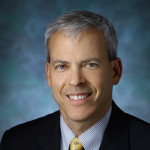
- Antonio C. Wolff, MD, FACP, FASCO, is a medical oncologist at the Johns Hopkins Kimmel Cancer Center. Wolff has been working in the field for about 20 years.
Responses have been edited for length and clarity.
